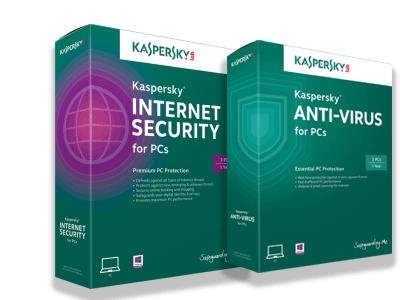
With the advent of Social Media such as FaceBook, Twitter and other social media sites the chances of getting duped by scammers on the Internet has grown exponentially. The internet has made communicating back and forth between one country and another a normal every day occurance. A person in Boston, MA can instantly chat with someone in England by video or text with no lag in communication time. This all makes staying in touch with family, friends and businesses much easier, yet it also opens up the world to many more chain letters, scams, and other unethical attempts to take advantage of the unsuspecting person. There are ways to avoid the major scams and spams out there between knowing the common attempts and always being vigilant to avoid new scams.
Spam
In the old day's Junk Mail was what you got in your mail box as creditors and solicitors barraged your mailbox with unwanted advertisements and promotions. What has happened since the advent of E-mail is all of this junk mail has moved over to your inbox and spam was born. Most spam originates when you sign up for provided services on line. As an example when you sign up for a supermarket discount card you have to provide an e-mail account. Now that they have your email account you will start getting spam about the products & sales from that store. Other stores, chains and many if not most social media sites require and e-mail to sign up which they then use to send you spam.
One solution to this spam problem was creating "Junk" or "Spam" folders. Setting up one of these folders is simple and you have the option of setting filters in an attempt to catch as much spam as possible while letting the real e-mails get through that you want to read. The problem with this method is when the filter mistakenly marks a real e-mail as spam and sends it to the spam folder. So to be on the safe side it's a good idea to check that spam folder periodically to check for those real e-mails. As you can imagine, this can take some time.
A better solution, which is common, fast and almost foolproof, is to create a separate spam e-mail account. Creating a new e-mail account cost you nothing from any of the major players in the field like Google, Yahoo and Hotmail. You will use this second e-mail account to sign up for all on line services. The other e-mail account you keep for friends and family, you never use this account to sign up for anything. By doing this all of the spam will end up in the second e-mail account which you really don’t even have to check. By doing this there is no need to setup complicated filters. This is not to say you will never get spam in the family, friend e-mail account but they will be far and few between.
Hackers and Scams
A hacked e-mail is one that opens up spam to any and all contacts contained within that e-mail. This is not an uncommon occurrence. The hacker figures out the password and sends out a link or e-mail to all contacts in that account. Some of these hackers end up just sending out a link to pornographic sites. At other times the links are a bit more vicious and actually go to a page which puts a virus on the computer of whoever opened the e-mail or link. So if your e-mail account is hacked everyone on your e-mail list could conceivably get an e-mail with a link that is attached to a virus.
As scary as this seems there are a couple of things you can do to avoid this from happening. The first is when creating a password to your account don't just use letters and or numbers. Add punctuation such as a period or underscore. Also don't use the same password with every online account you have. If a hacker figures it out he just might end up in your bank account. Another defensive move is to change your password every few months or at least once a year. More often if you even suspect your e-mail has been hacked.
Even though this is common sense never ever give out your password! You will find sites that will ask you for your e-mail and e-mail password in order to set up an account or to claim a prize. Any legitimate site will ask you to create a new password for an account. Any site that asks you for your e-mail password to set up an account is most likely an illegitimate site.
SCAMS
There's nothing new about scammers, they’ve been around for hundreds if not thousands of years. The difference now is the internet; this has been a game changer. Many scams in the past would involve face to face interaction with the victim; some of these scams would take weeks if not months to complete. Scams on the internet on the other hand just need to be crafted well enough to dupe the right person. The audience of the scammer has now gone from a few dozen to litterly millions.
Common scams on the internet guise themselves in legitimate apparel. Fake sites look like the real deal but in reality are set up to take your information or your money or both. An example is someone has hacked into your friends email account, the hacker sends you an email asking for help in the form of money. You want to help so you send the asked for cash never knowing the cash will never reach you'r friend until it's too late. The most recent scam we have seen at Northampton Computer Repair is a site that looks and feels like the FBI. It tells the victim that they have found child pornography on the victim’s computer and locks it down. To regain control of the computer you are required to send them $300! It works, the site looks so official that people are actually sending in multiply payments for the simple reason they don't want to bring the computer to an IT tech because it's embarrassing. Even though the person never had anything to do with child pornography they don't want to take the chance that someone else might think they did, this is what the scammers are banking on.
HOW TO AVOID SCAMS
The first and really the most important way to avoiding a scam is to use common sense. Have you seen the commercial on TV of the guy looking at his computer and yells to his wife that he has just won the Irish Sweepstakes? She comes back with, "Did you ever play the Irish Sweepstakes?", and the answer is no. Then you have the scam that say's you have $8,235,458 in a bank in some foreign country, you are entitled to it for some bizarre reason and all you have to do is send cash to pay for the transaction fees and they will immediately transfer the cash to your account. The old saying applies here, if it sounds too good to be true, it’s in all likely hood a scam. Other scams will ask you to input extremely secure information like your social security or credit card number, don't do it. Legitimate sites will not ask for this kind of information.
Another tip that will help you to know if the site is legitimate is to watch for the "http" and "Https" in the URL. HTTP stands for Hypertext Transport Protocol which is the language the browser uses to talk to the Website. HTTPS stands for the same thing except the added "S" stands for Secure. Any legitimate site be it a credit card site, a bank or store will use the "https" because it means a third party cannot listen in and retrieve your sensitive information. So if you are a site asking for this kind of information and you don't see the "https" in the URL, chances are it's a scam.
But it's not enough to just know that, some scammers will take the extra time to set their fake site up using the "https", only problem is the "secure" site is really their bank account ready to receive your money. This is where a little bit of detective work comes in. Let's say you get an e-mail from a friend that is in trouble and needs help in the form of cash. Calling that friend before sending money will verify in an instant if the e-mail is for real. If you’re on a site that looks and feels like your bank and they are asking for information you know they already have, call the bank and ask them if this e-mail originated from them, scam avoided.
In the end scammers have been around for a lot longer than the internet and will continue on for as long as there are ways to communicate to large masses of people. So it's really up to all of us to be diligent and questioning on any suspicious communication via e-mail or all of the diffrent forms now available to scammers.
Have you ever seen an e-mail that you know was a scam? Did you ever get taken by one of these scams? If so we would love it if you would be willing to share. One of the best ways to expose scams is to let the public at large know about it so others will be aware.


